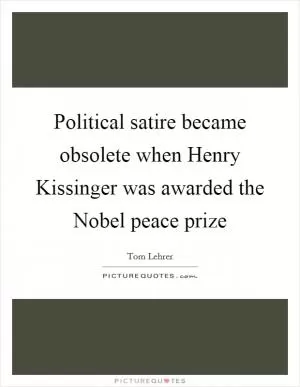History knows no resting places and no plateaus

History knows no resting places and no plateaus
Henry Kissinger, a prominent figure in American politics and international relations, exemplifies the idea that "history knows no resting places and no plateaus." Throughout his career, Kissinger has been a key player in shaping global events and policies, constantly adapting to new challenges and opportunities on the world stage.Born in Germany in 1923, Kissinger fled Nazi persecution with his family and eventually settled in the United States. He went on to become a renowned scholar and diplomat, serving as National Security Advisor and Secretary of State under Presidents Richard Nixon and Gerald Ford. Kissinger's approach to foreign policy was characterized by realpolitik, a pragmatic and often controversial strategy that prioritized national interests over moral considerations.
One of Kissinger's most notable achievements was his role in the opening of diplomatic relations between the United States and China in the early 1970s. This historic rapprochement, known as the "Ping-Pong diplomacy," paved the way for President Nixon's groundbreaking visit to China in 1972 and laid the foundation for future cooperation between the two countries. Kissinger's diplomatic efforts helped to ease tensions between the United States and China, as well as the Soviet Union, during the Cold War.
However, Kissinger's legacy is not without controversy. Critics have accused him of supporting authoritarian regimes and engaging in questionable tactics, such as the secret bombing of Cambodia during the Vietnam War. Despite these criticisms, Kissinger remains a respected figure in the field of international relations, known for his strategic thinking and diplomatic skills.












 Friendship Quotes
Friendship Quotes Love Quotes
Love Quotes Life Quotes
Life Quotes Funny Quotes
Funny Quotes Motivational Quotes
Motivational Quotes Inspirational Quotes
Inspirational Quotes